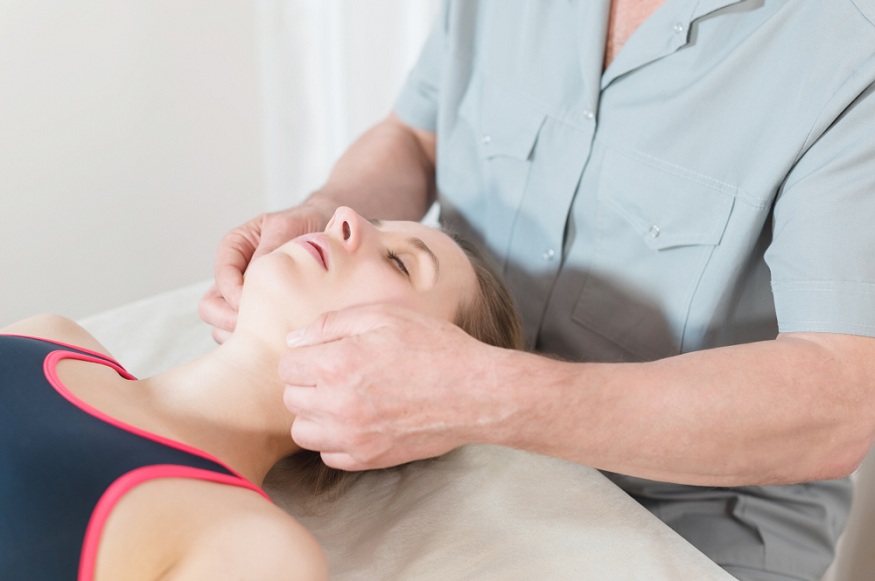TMJ, aka Temporomandibular joints, are situated in either area of your face, beneath the ears. If you experience acute TMJ pain, a Westwood dentist can help! As TMJ links your jawbone to the skull and is used every time while talking and chewing, when these joints get injured or inflamed, the adjacent muscles can cause acute pain. Other vital factors, including inadequate bite alignment or arthritis, may lead to temporomandibular disorders.
A general dentist in Westwood often diagnoses, treats, and manages these disorders when dysfunction occurs. Hence, knowing the types of available TMJ treatments and how dentists perform TMJ therapy can help them determine the right course of treatment.
- Acupuncture – It involves a practitioner penetrating sterile, slender, and flexible needles into particular areas of the body. They will see your body’s tension and ask different questions before determining which parts of the body to target. There is no solid scientific proof that acupuncture is highly effective in ruling out pain, but some patients get results with this TMJ treatment.
- Jaw Surgery – This treatment is intense, irreversible, invasive, and must be cautiously performed. There is little proof showing the success of jaw surgery to boost symptoms. If your general dentist recommends jaw surgery right away, consider getting a second opinion.
- Splint Therapy – A dental splint is an oral equipment fitting rightly over your teeth and safeguards your teeth, TMJs, and jaw muscles. Your dentist can create a bespoke splint using a digital scan or a mark of your teeth. When the therapy starts, you can be requested to put on the splint all the time or only while you sleep.
Its success relies on how amazingly you comply with your dental professional’s guidance. To ensure your dental splint fits appropriately and gives the highest relief, your dental team might have to modify it numerous times since your jaw gets acquainted with it.
- Bite Modifications – Modifying your bite is an invasive TMJ treatment since it’s irreversible. This treatment involves revamping your teeth to let them fix together with maximized stability across your mouth. You might need this only when you have mobile teeth or heavy contact on your front teeth.
How Does a Dentist Perform TMJ Therapy?
Often, TMJ disorder symptoms disappear without treatment. A dentist in Westwood might advise TMJ therapy if they don’t go away.
Medications
With treatment without involving surgery, these medicine options might alleviate pain related to TMJ disorders:
- Tricyclic Antidepressants – These medicines, including Pamelor, are used for treating depression. However, they are often used in minimal doses to alleviate pain, regulate bruxism, and aid in sleeping.
- Pain Killers and Anti-Inflammatories – Your healthcare provider might temporarily recommend more potent painkillers, including prescription-strength ibuprofen if over-the-counter painkillers are ineffective in addressing TMJ pain.
- Muscle Relaxants – These medicines are used for a few days or weeks to regulate pain because of TMJ disorders where muscle spasms occur.
Surgical Process
- Arthrocentesis – It’s a minimally invasive process involving penetrating minor needles into the joint so that fluid can flow naturally through the joint to eliminate debris and inflammatory byproducts.
- Open-Joint Surgery – If additional conservative treatments fail to reduce your jaw discomfort and it seems that a structural problem in the joint is the cause, your doctor can recommend open-joint surgery to either substitute or reconstruct the joint. However, this type of surgery contains higher risks compared to other processes. After discussing the advantages and disadvantages with your dentist, you only have to ponder the process very minutely.
Conclusion
If you experience headaches, jaw pain, and eraches, you might have a TMJ disorder. But you don’t have to live with discomfort and pain! There’s not just a treatment that alleviates and rules out TMJ pain, which is why a doctor consultation is essential.

